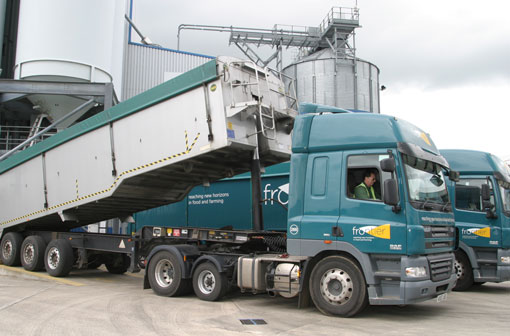No need to fear commodity speculators

Wheat prices on futures markets have continued to drift this week as confidence in some EU states keeps investors cautious. But farmers shouldn’t fear speculators’ influence on agricultural commodities markets – their activity can lead to rallies too, as Bidwells‘ Nick Tapp explains
For most of the past three decades, farmers have grown used to a market offering prices in gentle decline.
To maintain income, efficiency gains were the name of the game. Shave a few pence off fungicides here, join a buying group there, and ideally pick up a few extra hectares over which to spread the overhead costs. Fewer people drove larger machines over farms with more acres.
Now all of that has been thrown into sharp relief, with those same carefully cost-cutting growers faced with daily price movements of several pounds per tonne; and not just for the crop in the barn, but the one in the ground, and even the one that is just a gleam in a seed merchant’s eye. Suddenly, marketing of the crop is the most important factor in achieving and securing a profit.
Agonising over variety, choice and growth regulator timing pale into insignificance, when 25mm of rain on Sunday can move prices by £5/t on Monday, and a Russian announcement knocks €12/t off the French futures market MATIF. Movements in the price of oil matter more to cereal returns than the choice of combine.
Coping with volatility
How do farmers deal with this level of market volatility and who are the winners and losers in this market?
Farmers don’t enjoy volatility, except for those few trades near the top. Processors, packers and millers certainly don’t enjoy volatility, as they have relatively long-term price agreements with customers, which cannot readily accommodate large and frequent swings. They have to fix raw material prices at some point, and really have to hope that when they do so, they have made no worse a decision than their immediate competitors.
Retailers certainly don’t enjoy volatility, as it further muddies the already murky pricing discussions with suppliers, and certainly gets in the way of relentless, “cheap” or “value” messages. Retailers are no longer in the habit of daily price changes (unlike their greengrocer forbears), and their model, so successful for 30 years, has ridden the gently declining real cost of most commodities with some comfort.
So who, in anyone, benefits? Is market instability a real case of “everyone’s a loser”? Probably not quite, as some of the speculative funds that have flooded into commodity derivatives will have backed the right horse. They are good at the fundamental analysis, good at jumping on a bandwagon, and some are remarkably shrewd at stepping off at the right time.
The more uncertain the market, the more both sellers and purchasers need to lock into forward contracts. The other side of physical transactions may not be in place, and the futures market is the essential hedge. Market size has grown almost exponentially, as volatility increases demand, and, simultaneously offers super profits to those who pick the market correctly.
They don’t always do so, as was apparent from the net positions on the Chicago market (the only sensibly transparent futures market) at the end of June 2010, when the relationship between the number of contracts bought and sold suggested traders were anticipating further falls in the wheat market. Some speculators have been playing catch-up ever since.
So to conclude, farmers are uncomfortable with volatility, as it is outside their comfort zone and they resent missing the highs and then being told by the media how rich they are. Processors, millers and packers really don’t like volatility, as it puts real risk into their businesses; and retailers have not had to address it for so long that they are learning a whole new language.
Should we worry if some speculators get rich? Probably not, because without them to oil the wheels of the major commodity markets, volatility would reach whole new levels of uncertainty.
*Nick Tapp is head of Agribusiness at Bidwells. 01223 841841 nick.tapp@bidwells.co.uk

